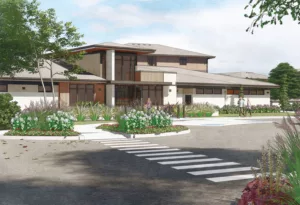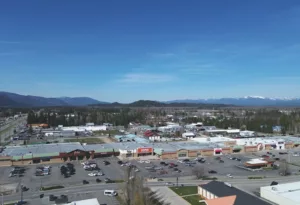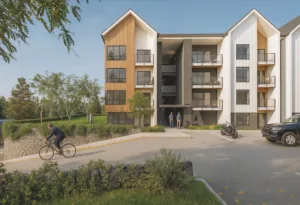
Home » Finance experts: Economic growth to slow in 2019
Finance experts: Economic growth to slow in 2019
~
December 20, 2018
 Financial experts here say 2018 has been a good year for the Spokane area, but 2019 is unlikely to bring the same rate of growth.
Financial experts here say 2018 has been a good year for the Spokane area, but 2019 is unlikely to bring the same rate of growth.
Steve Scranton, chief investment officer and economist for Spokane-based Washington Trust Bank, characterizes 2018 as “a solid year” for the bank.
However, Scranton says loan growth has been slowing, a trend he expects will continue in 2019. Part of the expected slowdown will be due to impacts from trade wars, he says.
“The Northwest economy as a whole is definitely more sensitive to the trade war situation,” Scranton says. “It definitely had that ripple effect in the Northwest, maybe more than some of the other economies, because the Northwest economy has trade as a key component, especially with our ports over in Seattle.”
Additionally, 2019 won’t see the tax cuts that 2018 brought, he says. He predicts national economic growth will slow from 3 percent to about 2 percent in 2019.
Don Stafford, market president of Greater Spokane Commercial Banking for San Francisco-based Wells Fargo & Co., concurs that a slowdown in growth is likely. Mortgage originations for Wells Fargo already have begun to slow, he says.
“You’re seeing trends around loan growth slow somewhat, but they’re still pretty stable,” he says. “It’ll be interesting, as we move forward, to see how that changes, given the economic cycles and rising rate environment.”
Liberty Lake-based STCU had a good year, says credit union President Ezra Eckhardt, with about 9 percent growth in both loans and deposits.
Next year will be a landmark year for the credit union, Eckhardt says.
“We’re gearing up for next year because we’ll cross $3 billion in total assets and 200,000 total members,” he says.
Greg Hansen, Numerica Credit Union senior vice president of business and dealer services, says the Spokane Valley-based credit union saw loan growth of about 15 percent and an increase in deposits of about 8 percent in 2018. A competitive environment made for a tough market for deposits this year, he says.
Hansen says that while the national and local economies have been flourishing for about a decade, history has shown that a downturn is inevitable. Consequently, he says, Numerica is trying to plan ahead.
He projects loan growth will be about 10 percent in 2019, with a similar growth in deposits.
Hansen says Numerica is also keeping an eye on Federal Reserve interest rates. He expects to see an increase of 25 basis points by the end of this year, with an additional one to two increases in 2019. Those increases, combined with rising housing prices in the area, will make buying residential real estate more difficult, he says.
Eli Petropoulos, equity analyst for Spokane-based Vorphal Wing Securities Inc., says investors can expect to see much of the same volatility they experienced in 2018.
“2019 will not be an easy year for either professionals or retail investors, as we see asset classes reacting very differently on a week-to-week basis, which does not allow for most people to take advantage of trends,” Petropoulos says. “Based on that, I think it’ll be a challenging year, especially compared to 2017, which was a very good year as far as low volatility and very consistent trends in momentum-style investments.”
Rising interest rates and geopolitical concerns will contribute to volatility in 2019, he says.
Latest News Special Report Banking & Finance
Related Articles
Related Products
Related Events




